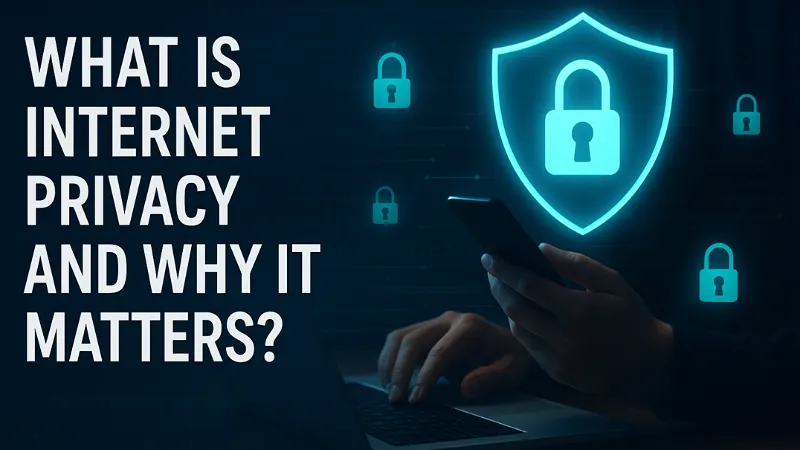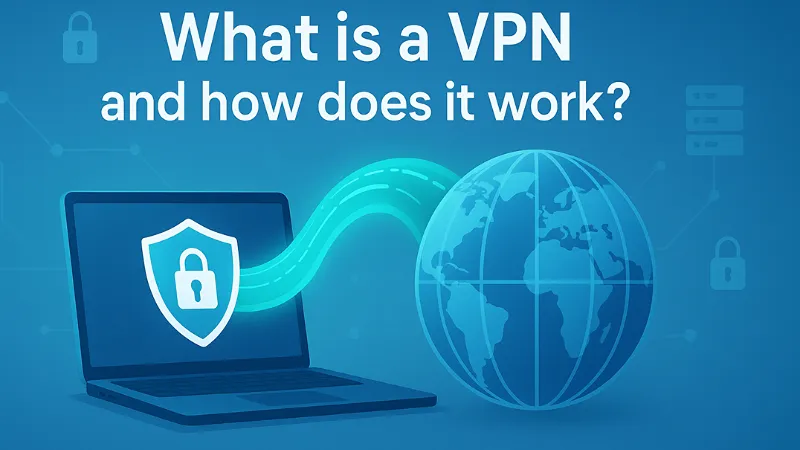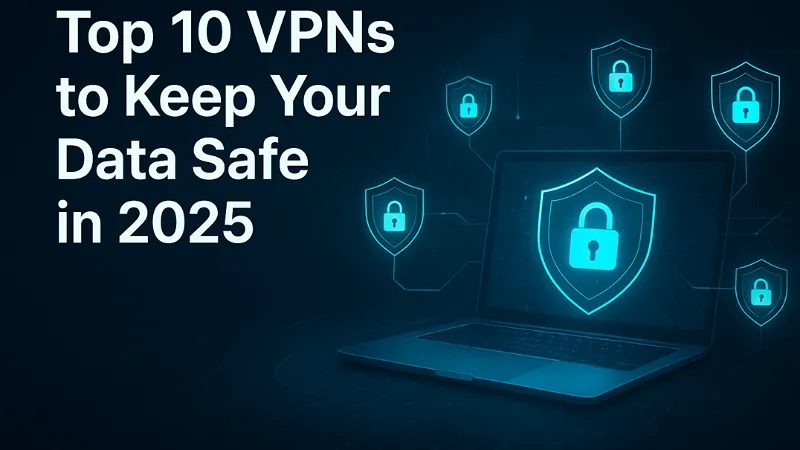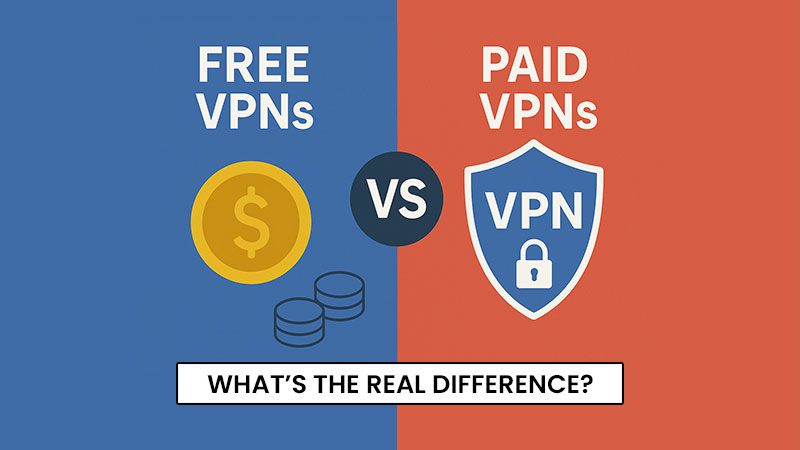In a world where we’re constantly connected, every click, search, and scroll leaves a digital footprint. Whether you’re shopping online, sharing photos, or simply browsing social media, your personal information is being collected – often without you realizing it. This raises a fundamental question: What Is Internet Privacy? Understanding Internet Privacy means recognizing how your personal and behavioral data are monitored, stored, and shared every time you go online. From social media platforms to search engines, countless entities track your digital activities to build profiles about you, influencing everything from the ads you see to the content you’re shown. Internet Privacy is not just about keeping secrets; it’s about maintaining control over who has access to your digital identity, how your data is used, and what information you choose to share with the online world.
What Is Internet Privacy?
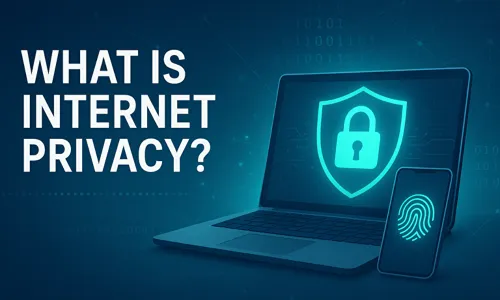
When people ask, “What Is Internet Privacy?”, they are really asking how safe their personal information is when interacting online. Internet Privacy is the concept of keeping your personal and professional data secure from unauthorized access, use, or disclosure while you’re connected to the internet. It is the foundation of safe digital interaction, ensuring that users can browse, communicate, and transact without fear of being monitored or exploited.
Internet privacy, sometimes called online privacy or digital privacy, refers to the level of protection your personal data has when you’re online. It encompasses how information is collected, shared, stored, and used across the internet. It also includes the rights individuals have to control their personal data and the obligations of companies and websites to handle that data responsibly.
This includes:
- Personal data like your name, email, and location.
- Browsing behavior such as websites visited and search history.
- Financial details including credit card information and online purchases.
- Communication data from emails, chats, and social media platforms.
Online Privacy defines how much control you have over your online identity and activities. It’s about more than just preventing hackers – it’s about ensuring that the data you share online remains in the right hands, and that you have the power to decide who sees what. Protecting Internet Privacy means protecting your autonomy in the digital age.
Why Does Internet Privacy Matter?
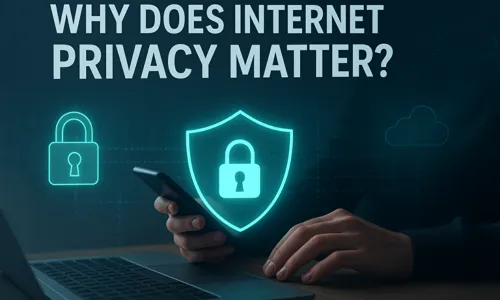
You might think, “I have nothing to hide.” But privacy isn’t just about hiding secrets – it’s about protecting your freedom and security. The importance of Internet Privacy and online privacy cannot be overstated in today’s hyper-connected world. With so many platforms collecting personal and behavioral data, the question isn’t whether your information is being gathered – it’s how it’s being used, and whether you still have control over it. Understanding why Internet Privacy matters can help users become more aware of digital risks and take active steps to protect themselves from potential threats.
Prevents Identity Theft and Fraud
Cybercriminals thrive on personal data. With just a few details – like your birthday, address, or credit card number – they can steal your identity, open fraudulent accounts, or drain your bank account. Strong online privacy practices and awareness of internet privacy laws help reduce these risks and keep your financial information secure.
Protects Personal Freedom
When every online move is tracked, your behavior can subtly change. You may censor what you say or do because you know you’re being watched. True Internet Privacy allows you to express yourself freely, without fear of surveillance or judgment. It gives you the confidence to share ideas and communicate safely.
Stops Unwanted Tracking and Targeted Advertising
Companies and advertisers use cookies, trackers, and analytics tools to monitor your activities. Without proper Online Privacy measures, you might unknowingly give away sensitive information. Taking control of your data reduces exposure to profiling, targeted advertising, and intrusive tracking.
Maintains Control Over Your Data
Your data is valuable, and every click, post, or transaction adds to your digital profile. Protecting online privacy ensures you decide what information is shared and with whom. By understanding internet privacy law, users can demand transparency and accountability from corporations that collect their data.
Builds Digital Trust and Online Safety
Websites, businesses, and apps that prioritize online Privacy gain user trust and credibility. When users feel their data is handled responsibly, they are more likely to interact, shop, and communicate online. Ignoring privacy, on the other hand, can lead to distrust, legal issues, or even internet privacy warning alerts when websites misuse personal data.
How to Protect Your Internet Privacy
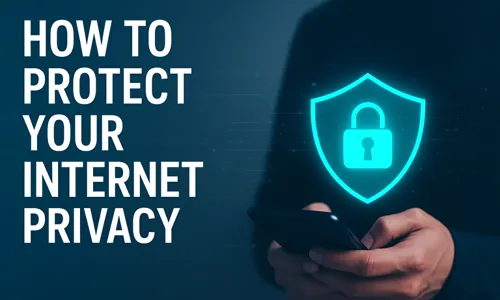
Protecting your Internet Privacy and online privacy is more important than ever in a world where personal data has become a valuable commodity. Cybercriminals, advertisers, and even legitimate companies can misuse your information if you’re not cautious. Thankfully, there are many practical ways to safeguard your privacy and avoid falling victim to an internet privacy warning or data breach.
Use Strong and Unique Passwords
Using strong, unique passwords for each account is one of the simplest yet most effective ways to protect your online privacy. Combine uppercase and lowercase letters, numbers, and special characters. Avoid reusing passwords across different platforms. Consider using a password manager to keep them secure.
Enable Two-Factor Authentication (2FA)
Two-factor authentication adds an extra layer of protection to your accounts. Even if a hacker gets your password, they’ll need access to your secondary authentication method – like a code sent to your phone – to log in. Enabling 2FA helps maintain stronger Internet Privacy and keeps your accounts secure.
Use Privacy-Focused Tools and Browsersnotepad
Opt for browsers and tools that emphasize online privacy such as Brave, Firefox, or DuckDuckGo. These browsers reduce tracking, block unwanted cookies, and give you greater control over your data. Using a VPN (Virtual Private Network) encrypts your connection and masks your IP address, protecting your data from hackers and third parties.
Regularly Review Privacy Settings
Social media platforms and apps often update their privacy policies, sometimes making your information more public by default. Regularly review and adjust your privacy settings to limit data sharing. Awareness of internet privacy laws also helps you understand your rights to data protection and transparency.
Be Careful with Public Wi-Fi
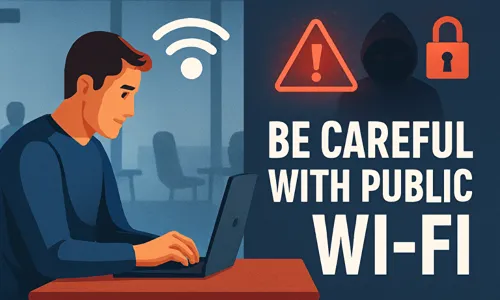
Public Wi-Fi networks are convenient but risky. They’re often unsecured, making it easy for hackers to intercept your information. Avoid logging into sensitive accounts or entering payment details when using public Wi-Fi. Use a VPN if you must connect to maintain Online Privacy.
Delete Cookies and Clear Browsing Data
Cookies store your online behavior and preferences, but they can also be used to track your activity. Deleting cookies regularly and clearing your browsing history can help protect your online privacy and prevent unwanted tracking that could trigger an internet privacy warning.
Stay Informed About Internet Privacy Laws
Understanding internet privacy law helps you make informed choices about how you share your information. Laws like the GDPR and CCPA were created to protect consumer data rights. Staying informed ensures you can hold companies accountable and safeguard your own digital security.
maintaining online Privacy requires consistent effort and awareness. By applying these strategies, you can protect your personal data, prevent privacy breaches, and ensure that your online experiences remain secure and private.
Online Privacy Laws and Regulations
Internet privacy is supported and governed by a range of laws and regulations designed to protect individuals from data misuse and unauthorized access. Some of the most well-known include the General Data Protection Regulation (GDPR) in the European Union, the California Consumer Privacy Act (CCPA) in the United States, and other national laws focused on safeguarding user rights. These internet privacy laws aim to ensure transparency, consent, and accountability from organizations that collect and process user data. Understanding these regulations helps users know their rights and what legal protections exist to maintain their Internet Privacy and online privacy.
Challenges and the Future of Online Privacy
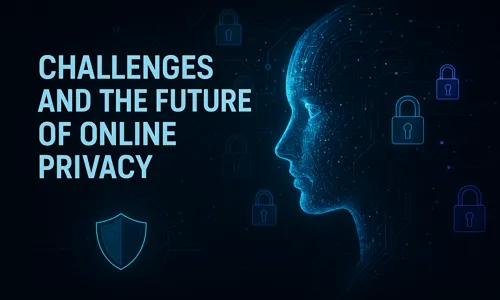
Despite advancements in technology and stronger regulations, protecting Online Privacy remains a constant challenge. With the rise of artificial intelligence, big data analytics, and smart devices, more personal information is being collected than ever before. Many users struggle to keep up with evolving privacy settings and digital threats such as phishing, data breaches, and surveillance. In the future, enhancing online privacy will depend on increased public awareness, ethical technology design, and stronger enforcement of internet privacy law. The future of Online Privacy will require collaboration between governments, corporations, and individuals to create a more transparent and secure digital environment, preventing potential internet privacy warning risks.
Frequently Asked Questions (FAQs)
Yes, Internet Privacy is essential for everyone who uses the internet. It helps protect personal data from hackers, advertisers, and unauthorized access, ensuring online safety and freedom.
No, complete Internet Privacy cannot be guaranteed. However, by using strong passwords, VPNs, and privacy tools, you can significantly reduce the risks of data breaches and tracking.
Yes, social media platforms often collect and share user data for targeted advertising. Reviewing and adjusting your privacy settings can help protect your personal information.
Yes, using a VPN encrypts your internet connection and hides your IP address, making it harder for third parties to track your online activities and improving your Internet Privacy.
Yes, deleting cookies regularly can enhance your Internet Privacy by removing stored tracking data that websites use to monitor your browsing habits.

